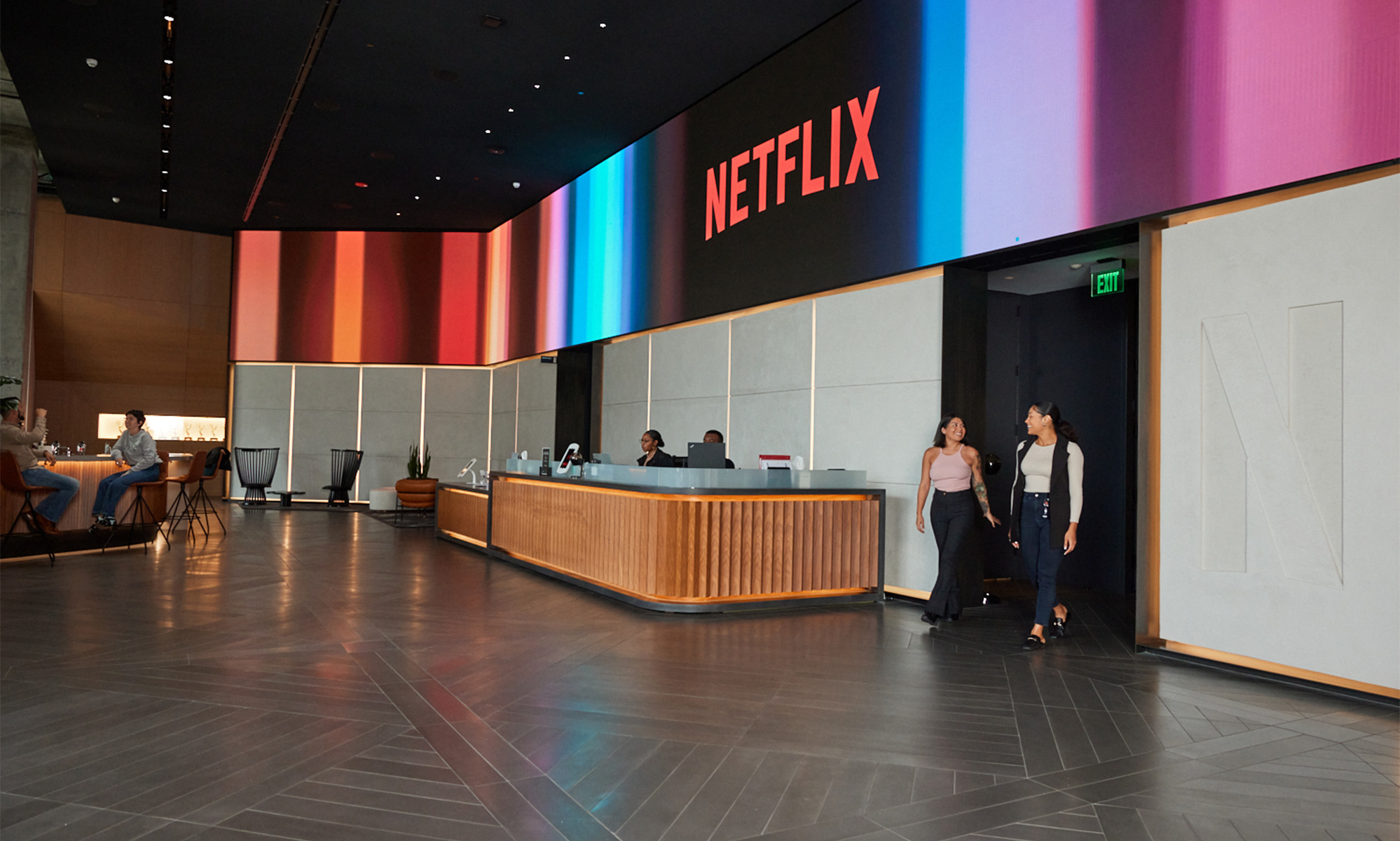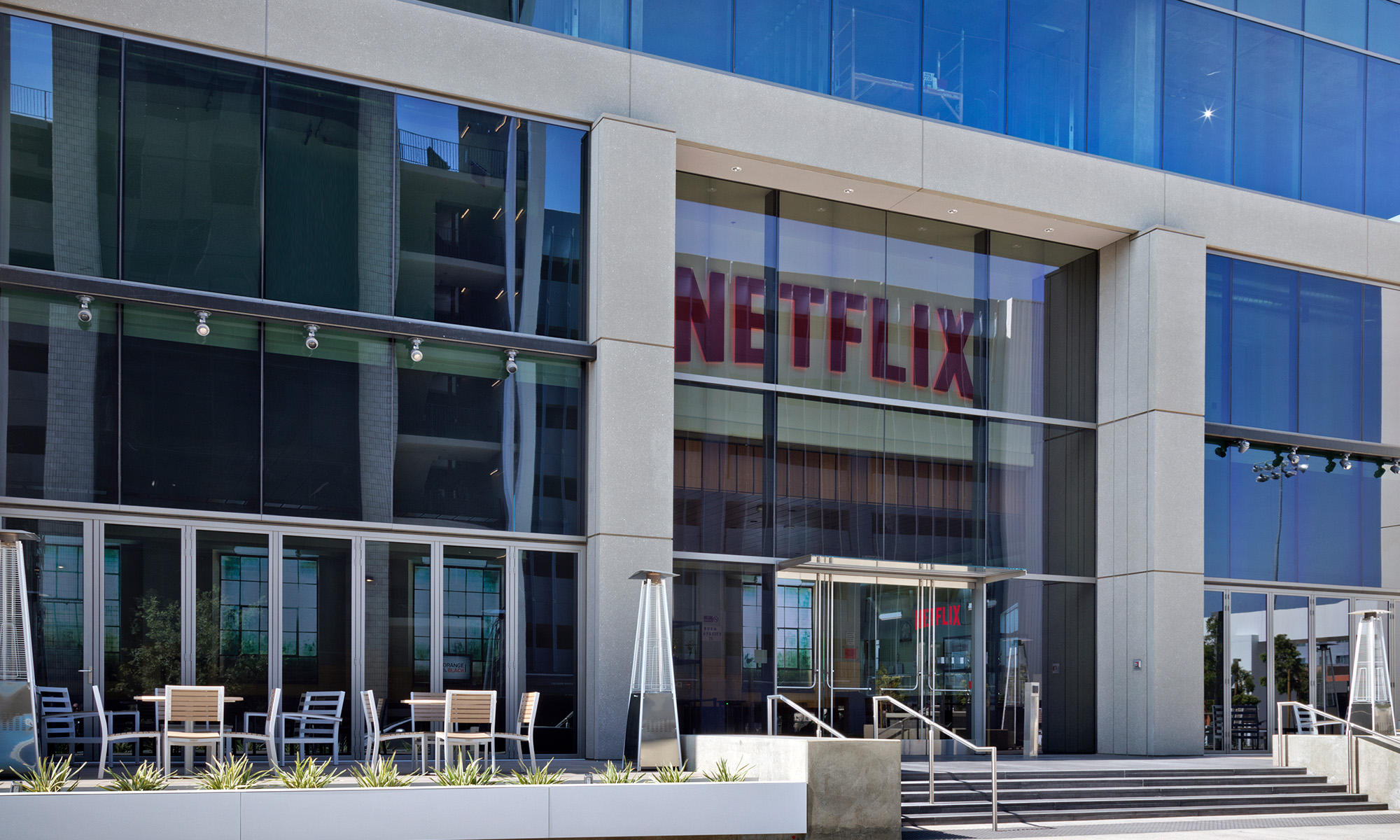Netflix (NFLX 1.18%) has revolutionized the way that people around the world view entertainment. From its modest roots as a service mailing physical DVDs to consumers, Netflix didn't hesitate to embrace the technology of digital streaming video. Its pioneering spirit has made Netflix a household name across the globe, with strong penetration in the U.S. and substantial growth in multiple overseas markets in recent years.
One consequence of Netflix's success has been dramatic growth in its share price. Even though the company has used stock splits in the past to make its stock more affordable to new investors, Netflix has once again seen its share price climb precipitously, nearing the $400-per-share level currently. Some believe that now would be a good time for Netflix to consider another split.

Image source: Netflix.
What's made Netflix split its shares in the past?
Netflix has only split its stock twice since it started trading publicly in 2002.
|
Date of Split |
Split Ratio |
100 Shares in 2002 Would Be... |
|---|---|---|
|
Feb. 12, 2004 |
2-for-1 |
200 shares |
|
July 15, 2015 |
7-for-1 |
1,400 shares |
Data source: Netflix investor relations.
Netflix's two stock splits are a good illustration of what's happened to behavior surrounding split decisions in the past 15 years. In the early 2000s following the tech bust, Netflix shares jumped precipitously, posting roughly 15-fold gains over a 15-month period ending in January 2004. That sent the stock from single-digit levels to about $80 per share. At that point, a 2-for-1 split prevented Netflix shares from climbing into triple-digit territory, safely leaving them in the $40s.
Netflix stock got pushed up and down for various reasons over the years that followed, with the controversy surrounding how to separate the DVD and streaming video businesses leading to a big hiccup for the shares. The recession in 2008 also played a role in holding Netflix down, but by the 2010s, the streaming giant found a sustained upward trajectory. Yet it was only when the stock approached $700 per share that Netflix finally bit the bullet and did a seven-for-one stock split, getting the stock back down toward the $100 level.
Could another Netflix stock split be coming?
Now that Netflix shares have climbed once again, some investors would love to see another split. It's not that they mistakenly think that a stock split indicates any sort of fundamental change in the value of the company -- it merely creates more shares that are lower in price in direct proportion to the stock split ratio. But such moves in the past have indicated optimism among Netflix executives that the future looks bright and that further share-price gains are likely.
Investors certainly have that optimism. The stock recently saw its market capitalization exceed that of some of the oldest and best-established giants in the entertainment industry, as shareholders believe that Netflix has the capacity not only to establish its own content library to rival that of its older competitors but also to maintain a stranglehold on the leading method of distributing that content to viewers. Despite efforts to come out with rival streaming services, Netflix still has a commanding lead in terms of customer counts for the dedicated video service.
Skeptics question, though, whether Netflix can keep up its current momentum. New subscriber acquisition is getting increasingly difficult, and it'll take strong performance overseas in order to sustain growth. Other companies internationally have already seen Netflix's potential and are mimicking its business model, and that'll make it harder for the U.S. company to gain the penetration it needs to match its success domestically.
Don't touch that dial
One discouraging sign for those seeking a stock split is that Netflix hasn't raised the issue during quarterly conference calls. However, that was also the case before the 2014 move, so it's unfair to draw too many conclusions from that.
Based on recent history and trends in the industry, Netflix probably won't do a stock split unless its shares climb much higher from here. For shareholders, though, that's not bad news, and the much more important question is whether Netflix can keep growing to justify more share-price gains from current levels.






